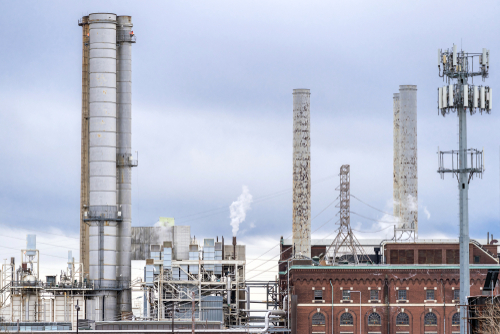
The deadline is looming for public comments on Gov. Tom Wolf’s controversial plan to enlist Pennsylvania in the Regional Greenhouse Gas Initiative (RGGI), and some lawmakers are saying the entire process has been turned into an unacceptable railroading of a bad idea.
The COVID-19 pandemic, they say, has hobbled the necessary legislative debates and public input on a plan that opponents warn could torpedo Pennsylvania’s energy sector and erase scores of jobs in return for a commitment that is not guaranteed to accomplish much other than higher electric bills.
In written comments filed Dec. 10 with the Independent Regulatory Review Commission (IRRC), State Rep. Jim Struzzi (R-Indiana County) called on Wolf to halt the effort to bring Pennsylvania into RGGI under an executive order and instead take the legislative route with the appropriate schedule of in-person hearings, which have been impossible to hold for nearly a year due to COVID restrictions.
“I want to state that I am opposed to the overall process of these hearings during a pandemic, and during the holiday season when many are distracted by other activities,” Struzzi wrote. “This entire process should be placed on hold until in-person public hearings can be held.”
Struzzi and other opponents said in their written comments to the IRRC that the Wolf administration had largely glossed over warnings about the potential side effects of RGGI membership by improperly cutting the legislature out of the process and by using remote meetings that blunted public participation in the debate.
“If Pennsylvania enters RGGI, we will be the only state that enters RGGI without legislative approval, essentially without the voice of all PA residents being heard,” said Struzzi, who last year introduced a bill, which Wolf eventually vetoed, that would have required approval from the legislature before becoming the 11th state to join the RGGI program.
The RGGI alliance currently is made up of 10 eastern seaboard states that have banded together to achieve a significant reduction in greenhouse-gas and carbon dioxide emissions using a united front and a regional game plan. The strategy includes regional CO2 allowances that are auctioned off quarterly with proceeds invested by the member states in their own energy efficiency and clean energy programs. Opponents state the RGGI program is tantamount to instituting a carbon tax.
The IRRC is taking public comments until Thursday, Jan. 14. The agency was created by the state legislature in 1982 to oversee the state’s rulemaking process. Based on the comments as well as the 10 virtual hearings held in December, the IRRC will draft its own comments on the RGGI plan and submit it to the Department of Environmental Protection (DEP) on or before Feb. 16; the DEP is the agency that Wolf has tasked with bringing Pennsylvania into the RGGI fold.
The arguments of opponents and proponents have been staked out the past several months, and the comments filed with the IRRC thus far have not strayed much from the talking points.
The supporters of the RGGI contend that the time has come for Pennsylvania, a state finding itself facing a quintessential Hobson’s choice, to tackle emissions from fossil-fuel electricity if for no other reason than to provide cleaner air to its citizens. “The burdens of unhealthy air fall heaviest on our children, seniors, lower income communities and residents with existing heart and lung disease,” said the Pennsylvania branch of the American Lung Association. The association cited its 2020 “State of the Air” report, which concluded that eight Pennsylvania counties had rated a “failing” grade for ozone pollution and warned that the situation would worsen as climate change alter regional weather patterns.
However, Roger Caiazza, in testimony before the Pennsylvania House Environmental Resources and Energy Committee in August 2020, noted that emission reductions from Pennsylvania’s participation in RGGI would have a small effect on global warming. Caiazza, a retired air pollution meterologist, found there would be an emission reduction of approximately 0.0011 degree Celsius by the year 2050 if all Pennsylvania CO2 emissions were eliminated.
Environmentalists have raised clarion alarms about fossil-fuel power plants and factories located in urban areas as having an adverse impact on surrounding neighborhoods, particularly the low-income areas. Opponents of RGGI, however, argue those plants, along with the overall fossil-fuel industry, are more than just dinosaurs whose time for retirement has come. They also provide a reliable source of employment and tax revenues that will be sorely missed if they are forced to close in favor of renewable power plants often located many miles away.
“It will lead to a significant loss of employment among building trade and utility worker union members, and others,” wrote Thomas Melcher, Business Manager of the Pittsburgh Regional Building Trades Council.
In comments submitted Jan. 4, the Commonwealth Foundation, a Pennsylvania-based free-market think tank, said, “The effects from joining RGGI would be harmful to all Pennsylvanians.” It cited figures from Vince Brisini, director of environmental resources for Olympus Power and a former deputy secretary of the Pennsylvania Department of Environmental Protection, who estimated that shutting down Pennsylvania’s coal-fired generation under RGGI would result in the elimination of 8,000 direct and indirect jobs, $467 million in lost wages, and a loss of $3 billion annually to the Pennsylvania economy.
Other RGGI opponents continue to predict that Pennsylvania’s western neighbors, Ohio and West Virginia, are not bound by RGGI and will gladly take up the jobs and the electricity production that Pennsylvania will lose if Wolf’s plan goes through. And unless Wolf has a change of heart and turns the RGGI question over to the legislature, Thursday could be their last opportunity to make their case.